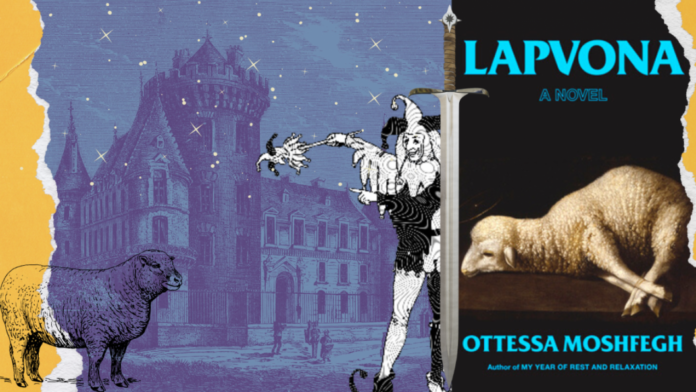Ottessa Moshfegh’s writing style is bleak and authentic to a point of slightly grim. In Moshfegh’s most recent novel, Lapvona, it’s entirely more gruesome. The story follows the idiotic villagers of Lapvona, who experience natural disasters like plague, famine, and drought. Their lord and governor, Villiam, has the resources to help them, but he stays in his hilltop manor that is more plentiful than the rest of the land. It is evident that Villiam has the riches to help his people, yet it seems as though the villagers are kept blinded or are just too dumb to realize. Lapvona focuses on Marek, a 13 year old boy who is “disfigured by birth, his spine, hinged forward so that his little shoulder blades stuck out from his back like sharp wings. He looked like a bird.” Marek is the result of a failed abortion and is raised by a rapist pedophile who beats him severely. He is delusional and has an obsession with adding to his soul’s score by adding actions he believes are moral. Marek isn’t the only character who derives their immoral actions on their delusional way of thinking; many characters do. Lapvona not only describes the morality of the villagers but their relationships too. Ina, her age unknown but the eldest in the town, is the town’s wet nurse who once supplied milk to many babies, while not ever being pregnant. She continues to allow grown men to feed off of her for comfort. The village, the people, their relationships, and their morals are grotesque. There is nothing beautiful or positive about this place. Yet Lapvona captivates readers through its negativity because that seems like the only thing the novel entails. It may be only 304 pages, but it is wonderfully disgusting. Ottessa Moshfegh has created a story that reveals just how poisonous and disturbing one village can be.
